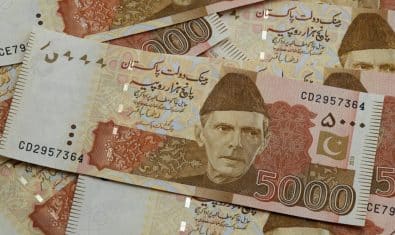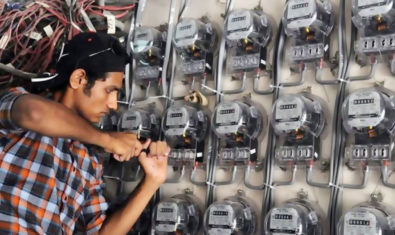India is leveraging cutting-edge technology to support its farmers compared to Pakistan’s neglect of its agricultural sector.
The recent introduction of AI-powered virtual news anchors by India’s state broadcaster Doordarshan shows the country’s forward-thinking approach to agriculture. These AI avatars provide crucial updates on weather, commodity prices, farming trends, and state welfare programs in natural tones, soon to be available in multiple regional languages.
Conversely, Pakistan’s government, under Prime Minister Shehbaz Sharif, has shown a glaring disregard for its agricultural sector in the latest budget. Despite acknowledging agriculture as the backbone of Pakistan’s economy, contributing 24 percent to GDP and almost 40 percent to employment, the government has imposed an 18 percent sales tax on essential agricultural items, including tractors, pesticides, and fertilizers in the new budget. This decision adds to the financial burden on farmers who are already struggling with overpriced inputs and rising energy costs.
Last week’s budget offered little solace to the local farming community, who are worried about their future. The lack of significant allocations for subsidies in the budget means that many farmers will be unable to afford the necessary inputs to cultivate their crops next fiscal year.
The federal government’s blunt rejection of purchasing domestic wheat in prior months has already led to significant losses for farmers, with market prices crashing due to an influx of excessive wheat stocks.
Budget Aftershocks
The federal budget has almost completely ignored the agriculture sector and this will only worsen existing issues. The budget lacks fresh initiatives and closely resembles last year’s, with only slight changes in allocations. As a result, it is unlikely to spur substantial growth in the sector.
Since 2022, the agriculture sector has been hurting due to increased production costs, reduced crop yields, and an inefficient crop marketing system across the country. All other problems are either directly or indirectly connected to these core challenges.
Last week’s Finance Bill 2024 introduced several measures that will likely make business difficult for farmers. These include raising the petroleum levy (phase-wise Rs. 20 per liter), imposing a sales tax on tractors, and reclassifying diammonium phosphate from ‘exempted’ to ‘taxable’ under the Third Schedule of the Sales Tax Act, 1990.
Additionally, potential spikes in electricity rates for tube wells and the big reduction in subsidies for fertilizer plants are expected to drastically increase production costs, making agricultural farming potentially and — logically speaking — economically unviable.
Expectations For Upcoming Fiscal Year
Earlier this month, the federal government unceremoniously slashed the annual growth target for the agriculture sector to 2 percent for FY25, compared to 6.25 percent achieved in the outgoing year. This abysmally low target, which doesn’t even keep pace with the country’s population growth rate, blatantly hints at anti-farmer feelings.
Sectoral growth will fall further when new taxes take full effect.
In stark contrast to India’s proactive measures, our government seems content to let its agricultural sector collapse. This neglect not only threatens the livelihoods of countless farmers but also jeopardizes the country’s food security and economic stability.




























If it will be a Nightmare for the Farmers, then then the whole country shold have to ber the consequences.
There will surely the shortage of wheat next year, & price may cross 6k per mun, as the farmers will not cultivate wheat this year end.
This year Governemnet annunce te price @3900 and failed to provide it to farmers. Next year they will only grow wheat for their personal use. In result the wheat prices will skyrockated. Might cross 7k + next year end.
Save this comment. ( It’s written on the wall)
Government to chahti hy ky wo import karey. otherwise uska commission kese baney ga.
Would have been better if writer had done some research before making comparison with india. In India Farmers have marched towards the Indian capital to demand higher prices for their crops. Protests also turned violent, so all is not well in india. It would have been better if the writer had just focused on the issues of Pakistani farmers as oppose to dragging in India to the debate.